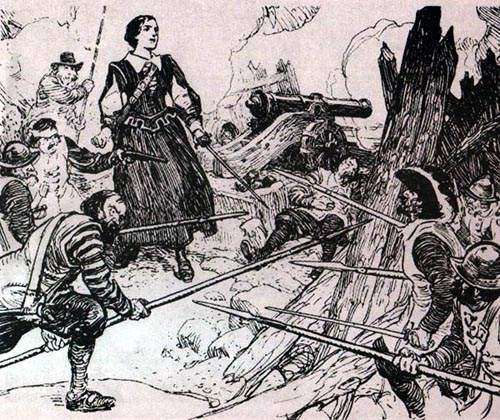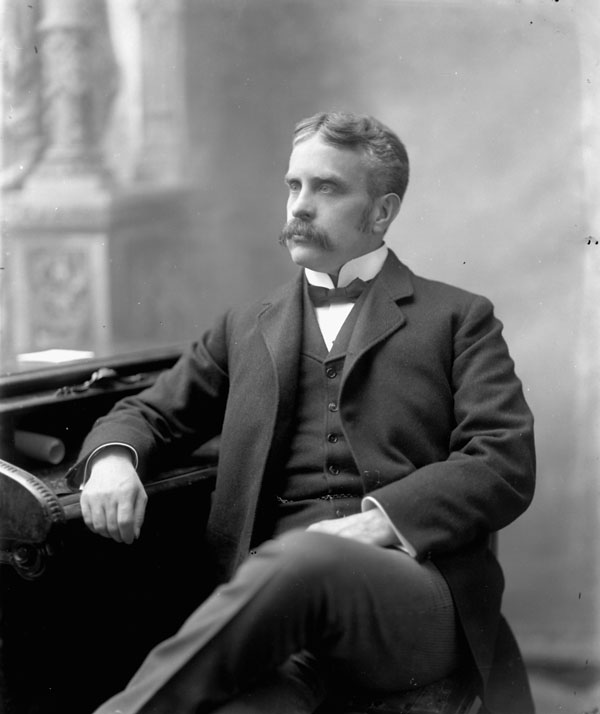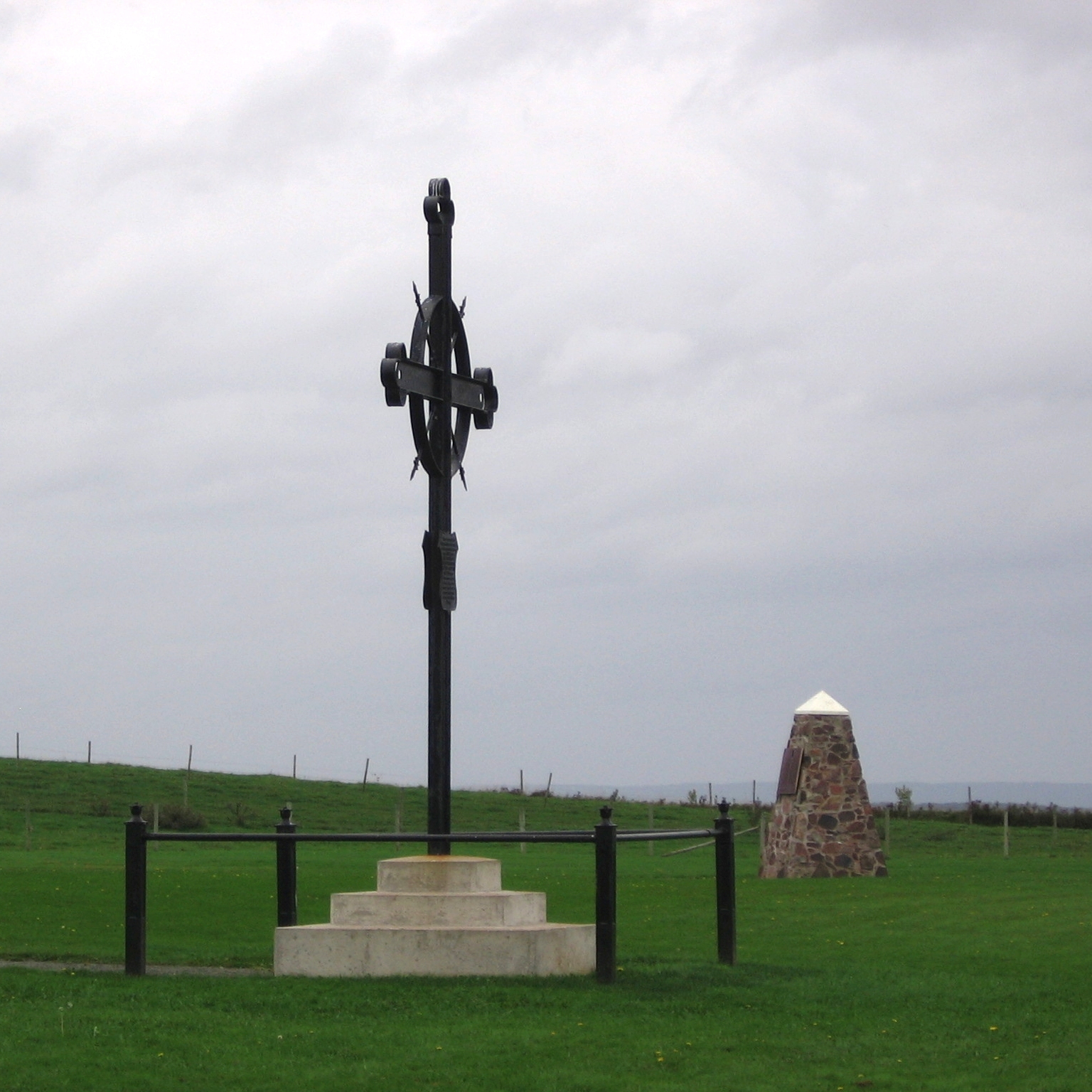|
Robert Denison
Robert Denison (1697–1766) was a soldier and political figure in Connecticut and Nova Scotia. He was elected to the Connecticut General Assembly in 1737, 1742, 1751 and 1756. He was a leader of the New England Planters who settled Nova Scotia and represented King's County in the Nova Scotia House of Assembly from 1761 to 1764. Early life He was born in Mohegan (later Montville, Connecticut), the son of Robert Denison and Joanna Stanton. He served in the New England militia in campaigns against the French and native peoples. In 1721, he married Deborah Griswold. He married Prudence Sherman in 1733 after the death of his first wife. Military career In 1745, Denison was captain of a company that took part in the Siege of Louisbourg (1745). During the French and Indian War, he participated in the Battle of Lake George. In 1759, he received a grant of land in Horton Township, Nova Scotia; the land had been vacated following the Expulsion of the Acadians. He was named lieutena ... [...More Info...] [...Related Items...] OR: [Wikipedia] [Google] [Baidu] |
Connecticut
Connecticut () is the southernmost state in the New England region of the Northeastern United States. It is bordered by Rhode Island to the east, Massachusetts to the north, New York to the west, and Long Island Sound to the south. Its capital is Hartford and its most populous city is Bridgeport. Historically the state is part of New England as well as the tri-state area with New York and New Jersey. The state is named for the Connecticut River which approximately bisects the state. The word "Connecticut" is derived from various anglicized spellings of "Quinnetuket”, a Mohegan-Pequot word for "long tidal river". Connecticut's first European settlers were Dutchmen who established a small, short-lived settlement called House of Hope in Hartford at the confluence of the Park and Connecticut Rivers. Half of Connecticut was initially claimed by the Dutch colony New Netherland, which included much of the land between the Connecticut and Delaware Rivers, although the firs ... [...More Info...] [...Related Items...] OR: [Wikipedia] [Google] [Baidu] |
Justice Of The Peace
A justice of the peace (JP) is a judicial officer of a lower or ''puisne'' court, elected or appointed by means of a commission ( letters patent) to keep the peace. In past centuries the term commissioner of the peace was often used with the same meaning. Depending on the jurisdiction, such justices dispense summary justice or merely deal with local administrative applications in common law jurisdictions. Justices of the peace are appointed or elected from the citizens of the jurisdiction in which they serve, and are (or were) usually not required to have any formal legal education in order to qualify for the office. Some jurisdictions have varying forms of training for JPs. History In 1195, Richard I ("the Lionheart") of England and his Minister Hubert Walter commissioned certain knights to preserve the peace in unruly areas. They were responsible to the King in ensuring that the law was upheld and preserving the " King's peace". Therefore, they were known as "keepers of th ... [...More Info...] [...Related Items...] OR: [Wikipedia] [Google] [Baidu] |
People From Montville, Connecticut
A person ( : people) is a being that has certain capacities or attributes such as reason, morality, consciousness or self-consciousness, and being a part of a culturally established form of social relations such as kinship, ownership of property, or legal responsibility. The defining features of personhood and, consequently, what makes a person count as a person, differ widely among cultures and contexts. In addition to the question of personhood, of what makes a being count as a person to begin with, there are further questions about personal identity and self: both about what makes any particular person that particular person instead of another, and about what makes a person at one time the same person as they were or will be at another time despite any intervening changes. The plural form "people" is often used to refer to an entire nation or ethnic group (as in "a people"), and this was the original meaning of the word; it subsequently acquired its use as a plural form of per ... [...More Info...] [...Related Items...] OR: [Wikipedia] [Google] [Baidu] |
Members Of The Connecticut House Of Representatives
Member may refer to: * Military jury, referred to as "Members" in military jargon * Element (mathematics), an object that belongs to a mathematical set * In object-oriented programming, a member of a class ** Field (computer science), entries in a database ** Member variable, a variable that is associated with a specific object * Limb (anatomy), an appendage of the human or animal body ** Euphemism for penis * Structural component of a truss, connected by nodes * User (computing), a person making use of a computing service, especially on the Internet * Member (geology), a component of a geological formation * Member of parliament * The Members, a British punk rock band * Meronymy, a semantic relationship in linguistics * Church membership, belonging to a local Christian congregation, a Christian denomination and the universal Church * Member, a participant in a club or learned society A learned society (; also learned academy, scholarly society, or academic association) is an ... [...More Info...] [...Related Items...] OR: [Wikipedia] [Google] [Baidu] |
Nova Scotia Pre-Confederation MLAs
A nova (plural novae or novas) is a transient astronomical event that causes the sudden appearance of a bright, apparently "new" star (hence the name "nova", which is Latin for "new") that slowly fades over weeks or months. Causes of the dramatic appearance of a nova vary, depending on the circumstances of the two progenitor stars. All observed novae involve white dwarfs in close binary systems. The main sub-classes of novae are classical novae, recurrent novae (RNe), and dwarf novae. They are all considered to be cataclysmic variable stars. Classical nova eruptions are the most common type. They are likely created in a close binary star system consisting of a white dwarf and either a main sequence, subgiant, or red giant star. When the orbital period falls in the range of several days to one day, the white dwarf is close enough to its companion star to start drawing accreted matter onto the surface of the white dwarf, which creates a dense but shallow atmosphere. This atmosphe ... [...More Info...] [...Related Items...] OR: [Wikipedia] [Google] [Baidu] |
1766 Deaths
Events January–March * January 1 – Charles Edward Stuart ("Bonnie Prince Charlie") becomes the new Stuart claimant to the throne of Great Britain, as King Charles III, and figurehead for Jacobitism. * January 14 – Christian VII becomes King of Denmark. * January 20 – Outside of the walls of the Thailand capital of Ayutthaya, tens of thousands of invaders from Burma (under the command of General Ne Myo Thihapate and General Maha Nawatra) are confronted by Thai defenders led by General Phya Taksin. The defenders are overwhelmed and the survivors take refuge inside Ayutthaya. The siege continues for 15 months before the Burmese attackers collapse the walls by digging tunnels and setting fire to debris. The city falls on April 9, 1767, and King Ekkathat is killed. * February 5 – An observer in Wilmington, North Carolina reports to the Edinburgh newspaper ''Caledonian Mercury'' that three ships have been seized by British men-of-war, on the char ... [...More Info...] [...Related Items...] OR: [Wikipedia] [Google] [Baidu] |
1697 Births
Events January–March * January 8 – Thomas Aikenhead is hanged outside Edinburgh, becoming the last person in Great Britain to be executed for blasphemy. * January 11 – French writer Charles Perrault releases the book ''Histoires ou contes du temps passé'' (literally "Tales of Past Times", known in England as "Mother Goose tales") in Paris, a collection of popular fairy tales, including ''Cinderella'', ''Puss in Boots'', ''Red Riding Hood'', ''The Sleeping Beauty'' and ''Bluebeard''. * February 8 – The English infantry regiment of Arthur Chichester, 3rd Earl of Donegall is disbanded four years after it was first raised. * February 22 – Gerrit de Heere becomes the new Governor of Dutch Ceylon, succeeding Thomas van Rhee and administering the colony for almost six years until his death. * February 26 – Conquistador Martín de Ursúa y Arizmendi and 114 soldiers arrive at Lake Petén Itzá in what is now Guatemala and begin the Spanish conquest of Guatemala with a ... [...More Info...] [...Related Items...] OR: [Wikipedia] [Google] [Baidu] |
Military History Of Nova Scotia
Nova Scotia (also known as Mi'kma'ki and Acadia) is a Canadian province located in Canada's Maritimes. The region was initially occupied by Mi'kmaq. The colonial history of Nova Scotia includes the present-day Canadian Maritime provinces and the northern part of Maine ( Sunbury County, Nova Scotia), all of which were at one time part of Nova Scotia. In 1763 Cape Breton Island and St. John's Island (now Prince Edward Island) became part of Nova Scotia. In 1769, St. John's Island became a separate colony. Nova Scotia included present-day New Brunswick until that province was established in 1784. (In 1765, the county of Sunbury was created, and included the territory of present-day New Brunswick and eastern Maine as far as the Penobscot River.) During the first 150 years of European settlement, the colony was primarily made up of Catholic Acadians, Maliseet and Mi'kmaq. During the latter seventy-five years of this time period, there were six colonial wars that took place in Nova Sc ... [...More Info...] [...Related Items...] OR: [Wikipedia] [Google] [Baidu] |
Sir Robert Borden
Sir Robert Laird Borden (June 26, 1854 – June 10, 1937) was a Canadian lawyer and politician who served as the eighth prime minister of Canada from 1911 to 1920. He is best known for his leadership of Canada during World War I. Borden was born in Grand-Pré, Nova Scotia. He worked as a schoolteacher for a period and then served his articles of clerkship at a Halifax law firm. He was called to the bar in 1878, and soon became one of Nova Scotia's most prominent barristers. Borden was elected to the House of Commons in the 1896 federal election, representing the Conservative Party. He replaced Charles Tupper as party leader in 1901, but was defeated in two federal elections by Liberal Prime Minister Wilfrid Laurier in 1904 and 1908. However, in the 1911 federal election, Borden led the Conservatives to victory after he claimed that the Liberals' proposed trade reciprocity treaty with the United States would lead to the US influencing Canadian identity and weaken ti ... [...More Info...] [...Related Items...] OR: [Wikipedia] [Google] [Baidu] |
Canadian Prime Minister
The prime minister of Canada (french: premier ministre du Canada, link=no) is the head of government of Canada. Under the Westminster system, the prime minister governs with the confidence of a majority the elected House of Commons; as such, the prime minister typically sits as a member of Parliament (MP) and leads the largest party or a coalition of parties. As first minister, the prime minister selects ministers to form the Cabinet, and serves as its chair. Constitutionally, the Crown exercises executive power on the advice of the Cabinet, which is collectively responsible to the House of Commons. Justin Trudeau is the 23rd and current prime minister of Canada. He took office on November 4, 2015, following the 2015 federal election where his Liberal Party won a majority of seats and was invited to form the 29th Canadian Ministry. Trudeau was subsequently re-elected following the 2019 and 2021 elections with a minority of seats. Not outlined in any constitutional docu ... [...More Info...] [...Related Items...] OR: [Wikipedia] [Google] [Baidu] |
Gurdon Denison
Gurdon Denison (1744–1807) was a physician and political figure in Nova Scotia. He represented the Horton Township in the Nova Scotia House of Assembly from 1785 to 1793. He was the son of Robert Denison Robert Denison (1697–1766) was a soldier and political figure in Connecticut and Nova Scotia. He was elected to the Connecticut General Assembly in 1737, 1742, 1751 and 1756. He was a leader of the New England Planters who settled Nova Scotia ... and Prudence Sherman. In 1778, he married Catherine Fitzpatrick. References Eaton, Arthur WH ''The History of King's County'' (1910) * 1744 births 1807 deaths Nova Scotia pre-Confederation MLAs {{NovaScotia-MLA-stub ... [...More Info...] [...Related Items...] OR: [Wikipedia] [Google] [Baidu] |
Hortonville, Nova Scotia
Hortonville is a community in the Canadian province of Nova Scotia, located in Kings County at the mouth of the Gaspereau River and is part of the Landscape of Grand Pré UNESCO World Heritage Site. The site of Fort Vieux Logis is located by the river at Hortonville, built by the British during Father Le Loutre's War to control the nearby Acadian settlements at Grand Pre. The landing at Hortonville was used in 1755 to deport the majority of Acadians from Grand Pre during the Bay of Fundy Campaign of the Expulsion of the Acadians and is today marked by an Acadian Memorial Cross. The same landing was used in 1760 when New England Planters, led by Robert Denison, arrived to re-settle the Grand Pre area and is marked by a National Historic Sites and Monuments Board plaque commemorating the Planters. The settlement was named Horton Township after Horton Hall, the English country estate of George Montagu-Dunk, 2nd Earl of Halifax, chairman of the British Board of Trade which was i ... [...More Info...] [...Related Items...] OR: [Wikipedia] [Google] [Baidu] |


_1938.jpg)




.jpg)
